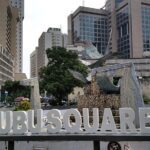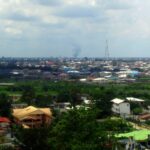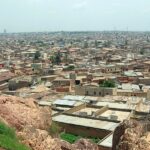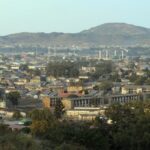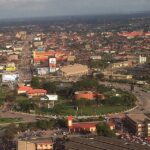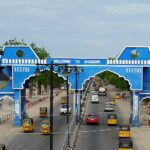Aba
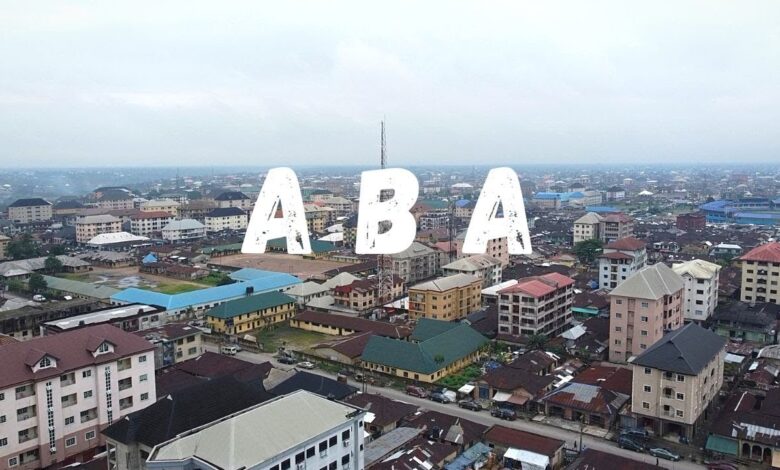
Aba is a city in Abia State, South East Nigeria, and also the commercial centre of Abia State. Aba is well known for its craftsmen and is also the most populous city in South Eastern Nigeria.
In 2016, Aba boasted an estimated population of 2.5 million and covered an area of 72 km². Predominantly inhabited by the Igbo ethnic group, which constitutes 95% of its population, Aba is situated in the southeastern part of Nigeria. The primary language spoken by the Aba people is Igbo, though English is widely used, serving as the official language for governance and business.
The city is home to significant institutions such as the Abia State University Teaching Hospital, a crucial referral facility in Abia State, Abia State Polytechnic, and Rhema University.
Renowned for its fertile land, Aba yields a variety of crops, including plantains, yams, coco yams, maize, potatoes, rice, cashews, taro, cassava, three-leaf yams, and vegetables like okra, tomatoes, and cucumbers. Notably, oil palm stands out as the most vital cash crop in Aba. Since the construction of the railway around 1915, connecting Port Harcourt (36 miles [58 km] southwest), Aba has emerged as a significant collection point for agricultural produce, especially palm oil and palm kernels.
As the commercial hub of Abia State, Aba is affectionately referred to as the “Enyimba city,” marked by a moulded elephant statue. Established in 1901 by the Ngwa clan of the Igbo people as a market town, the city evolved into a pivotal assembly point for agricultural products following the introduction of the British railway from Enugu to Port Harcourt. Today, Aba stands as a major urban settlement and commercial centre, with the Ngwa people being the indigenous inhabitants.
Full wiki about Aba, Nigeria
| ID |
|---|
| 55168 |
| Name |
| Aba |
| State ID |
| 1044 |
| State Code |
| FE |
| State Name |
| Fejér County |
| Country ID |
| 99 |
| Country Code |
| HU |
| Country Name |
| Hungary |
| Latitude |
| 47.02907000 |
| Longitude |
| 18.52172000 |
| WikiData ID |
| Q304274 |


